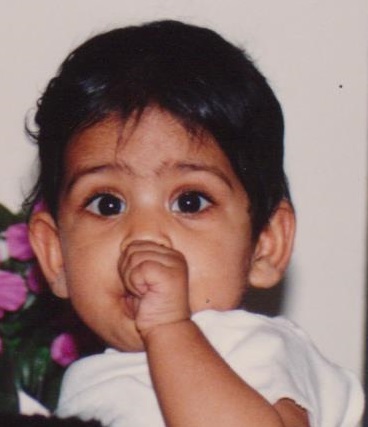CATEGORIES
Health and Wellness | People We Admire | Well-BeingOverview
- People who decide to end their lives are in immense pain.
- Suicide is a permanent outcome of a decision of a tortured mind.
- Mental illness is difficult because it’s like fighting a battle that your mind convinces you is not actually happening.
- People facing suicidal depression or bipolar disorder or anxiety deserve to navigate their illnesses with support, understanding and care.
TW: Suicide, depression, bullying, mental illness
On October 19 last year, my daughter Priya would have turned 30. She died by suicide in 2016. That night before her birthday, I was thinking about her and all the pain, anguish and heartbreak of her passing, her advocacy, and her achievements, in spite of suffering from a cruel disease for more than half of her short life. So I opened a blank word document and wrote a few words from my heart because I wanted her to be remembered for how she lived and not for how she died. I was shocked when my heartfelt tribute to my sweet Priya went viral on LinkedIn, and I’m glad it did.
The fact that a person at their absolute worst might come across my post and choose life instead of death helps me heal. Only by sharing our stories can we eliminate the stigma around mental illness.

Priya was working in another state when she passed. Her ashes came to us in a hot pink box, her favorite color. In the early days after she passed, I remember looking at her picture and asking myself, “What was the purpose of all your hard work, pain, illness, advocacy and passion for mental health and social justice? And now that you’re gone, what is my purpose?” I knew then that my purpose was to continue her advocacy. I am more informed now than I was when Priya was alive. I have started a mental health awareness group on Nextdoor, a local social networking site for neighborhoods, where I post articles and resources about suicide, depression and mental wellness. I have also shared the story of our loss with mental health provider groups, including Survivors of Suicide Loss, National Alliance on Mental Illness (NAMI) and American Foundation for Suicide Prevention (AFSP) and take part in 3 to 5 walks every year to raise awareness and funds and talk to parents from all over the world. When Priya first started getting sick, I didn’t know about NAMI or AFSP, and sadly, none of Priya’s medical providers mentioned them either.
People who decide to end their lives are in immense pain, but once they die, that pain gets transferred a hundred-fold to those who love them. It is not the only reason why people like Priya should not kill themselves but it’s very important to know that suicide is a permanent outcome of a decision of a tortured mind. I am just a mother who raised her children with a lot of love and taught them that our purpose is to serve others. But my love alone was not enough to keep Priya alive.

Tell people you have cancer and they will empathize with you. Tell people you are suicidal and they will turn away from you. Imagine what a pinch of compassion could do for a mentally ill person. In fact, why do we even call it “mental” illness? The last time I checked, the brain was a part of the body-perhaps the most important one.
Many parents with mentally ill teens blame it on the abundance of time on their hands. “You just need to get busy,” they say. Initially, I held the same delusional belief. But our children’s thoughts are very real to them and are immensely painful. Their reality is contorted and parents, of all people, need to understand that.
This is especially true if that child is a girl in India. My daughter, a brown girl in the USA, was bullied because of her body hair. She grew up to have an awfully distorted view of her body and I know that she wasn’t alone. Countless Indian girls only ever see a flawed person in the mirror, but I want them to know that they are pure, worthy, and full of light and love.
Most youngsters ask for their parents’ permission to go visit a friend but, ironically, won’t do the same when it comes to taking their own life. But they also cannot be kept under lock and key.

Priya had this to say about mental illness:
“Mental illness is difficult because it’s like fighting a battle that your mind convinces you is not actually happening. It is an invisible disease compounded by stigma and ignorance on a global level. This pushes people into dark places of shame and silence. When you get a broken leg or you have diabetes, you see a doctor and sometimes you take medication. Whatever it takes to get better. When you have cancer, people grant you wishes and bring you dinner. They celebrate your little victories. People facing suicidal depression or bipolar disorder or anxiety deserve to navigate their illnesses with the same support, understanding and care.”

By the time you’ve read this, a devastatingly high number of people would have attempted suicide or died by suicide. Nearly 800,000 people die by suicide in the world each year, which is roughly one death every 40 seconds. Suicide is the 2nd leading cause of death in the world for those aged 15-24 years. Depression is the leading cause of disability worldwide. It hasn’t gotten any better with the persistent loneliness in this pandemic. Yet people say suicide is preventable. Then why is my daughter and others like her dead? And what are we doing to bring speculative psychiatry medications out of the dark ages? Those suffering from severe mental illness need compassion and care and accurate diagnosis and effective treatments.

Conclusion
If you are suffering, please talk to anyone who has been kind to you—a friend, a teacher, a neighbor. If someone reaches out to you, do not feel pressured to say the right thing. Just hold their hand, let them talk and just listen to them.
If you know a parent whose child passed away, drop them a note or a text to let them know you were thinking about their child. Say that child’s name and share a heartfelt memory. Nothing would make them happier. Contrary to popular thinking, saying their dead child’s name will not remind parents of their loss and grief. Parents never get over the loss of their precious children. We just learn to cope better with the emotions, and grief with each passing year.
And if you have the conviction to bring about change, take it upon yourself to educate yourself and others. It is not easy, but together we can increase awareness and help eliminate the stigma and shame that surrounds mental health.


